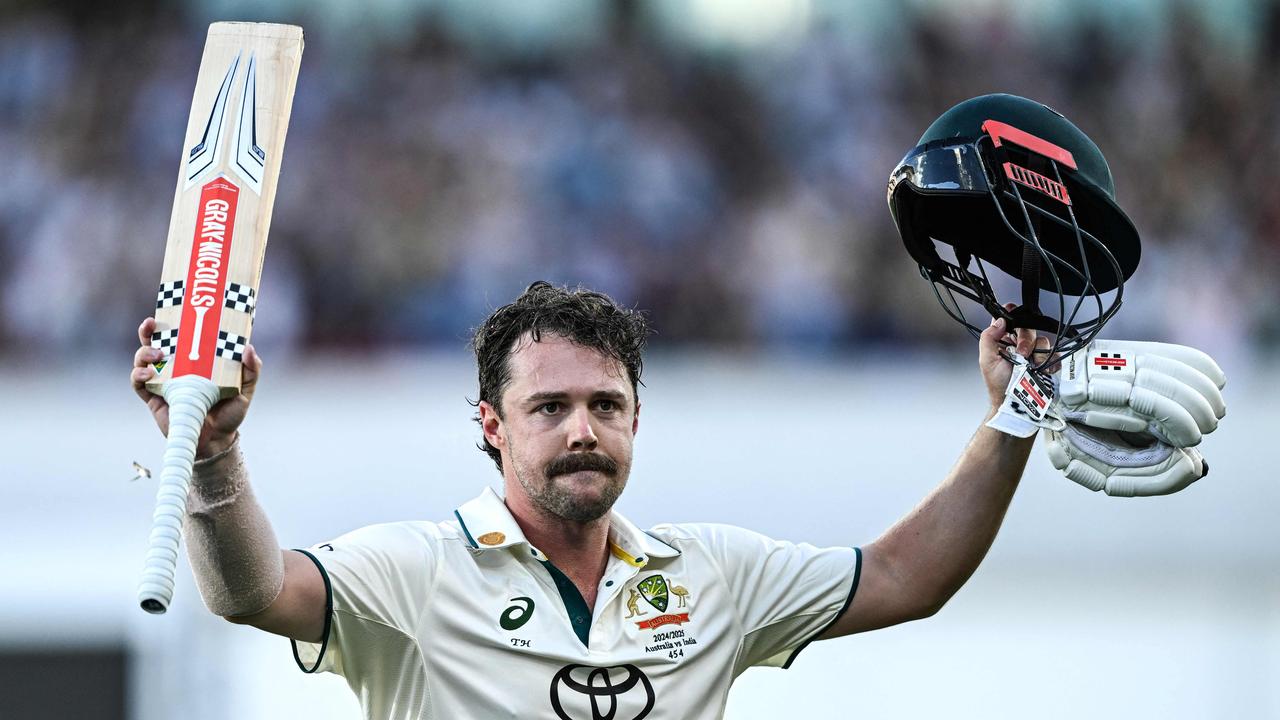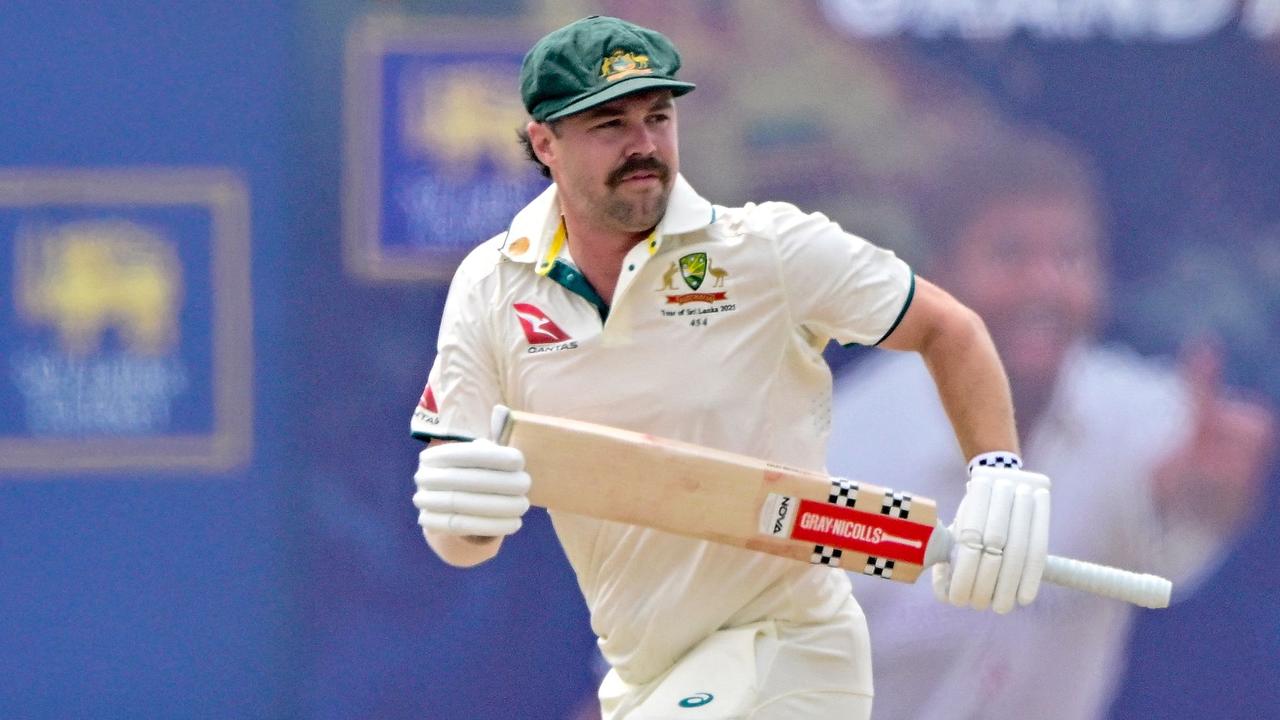Money, power and arrogance: The deadly cocktail behind the end of the IPL cricket tournament which should never have started
After the fall of cricket’s ‘unsinkable’ vessel, India has learnt when it comes to good health, those with the deepest pockets don’t always win, writes Robert Craddock.
Cricket
Don't miss out on the headlines from Cricket. Followed categories will be added to My News.
Money and influence can get most things you want in cricket. But add a large spoonful of arrogance and it can become a deadly cocktail.
This, essentially, was the story behind the stunning end to the ill-fated 2021 edition of the world’s richest cricket tournament, the Indian Premier League.
The IPL was branded cricket’s “unsinkable’’ vessel but vanished beneath the waves last Tuesday after a string of positive COVID tests hit her like a torpedo mid-ships, sending lifeboats scrambling in all directions.
While there is talk of refloating the tournament in late September in either England, India or the UAE, there is a strong chance this year’s edition is gone for good.
Such was the swiftness of the decision to shut it down, and the frenzied debate over player exit routes, post-mortems of the tournament were put on hold and stifled by the numbing shockwaves of the call.
But, as the bubbles burst and the caravans unhitched their wagons, many agreed the real shock was not that the tournament was abandoned, but that it got as far as it did – or was even held in India in the first place.
Watch Every Match of The 2021 IPL Live & On-Demand on Kayo. New to Kayo? Try 14-Days Free Now >
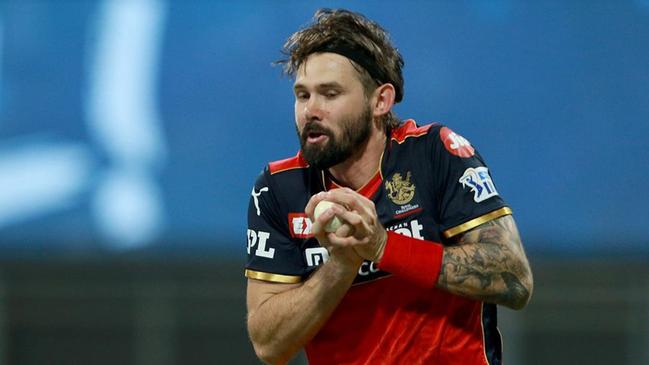
India’s COVID cases increased by a multiple of four during the IPL but the alarm bells were already ringing at the start of the tournament.
India was averaging more than 90,000 cases a day and rising steadily when the IPL started and none of the six cities chosen to host the tournament was doing well in the battle against COVID.
The choice of six cities was in itself baffling and left a provocative question hanging in the air … if you are not going to have crowds at a tournament why do you have to take it around the country?
Isn’t that simply asking for trouble?
The IPL backed their bubbles all the way, sometimes to brazen levels.
Former English captain Michael Vaughan admitted he was stunned the IPL camp moved into the nation’s capital, New Delhi, last week given it was not so much a hot spot but a raging inferno of COVID cases with a death every four minutes.
It was almost as if COVID was not so much a virus but a bear and the IPL were poking it in the eye and saying “c’mon then ... we’ll take you on.’’
They did. The bear won.
By Tuesday afternoon two of the Delhi based franchises had reported four positive cases and the game was up and over.
Last year’s successful tournament, held in the United Arab Emirates involved three venues – Abu Dhabi, Sharjah and Dubai – which were driving distance from each other and meant players did not have to put their health at risk by getting on a planes and would travel in their own vehicles.
No matter how private those private jets were, air travel was still a risk.
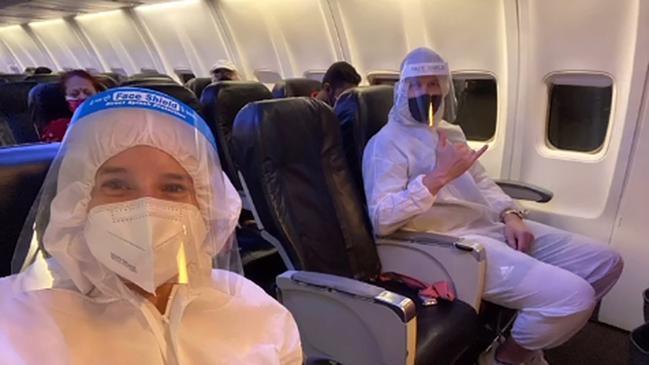
IPL players may have been the ultimate sporting VIPs in India but, as Cricinfo pointed out in its excellent tournament review this week, they still had to go through airport security and mix with people outside their bubbles which was a matter of major concern.
The IPL’s relationship with the COVID crisis on its television broadcast was curious to say the least.
It was reported that broadcasters were urged to focus on what was happening in front of them which meant game after game passed without any mention of the greatest humanitarian crisis in Indian history. It seemed odd. It was odd.
There have been times – such as with an Asian tsunami and Australia’s bushfires – when cricket broadcasts went completely in the reverse direction and embraced the tragic news breaking around them.
But the IPL essentially ignored it until some brief messages about fundamental health requirements such as masking up and staying at home which were old hat to people who had been hearing the same words for a year.
Very much a key figure in the “virus, what virus?’’ narrative is India prime minister Narendra Modi who, in a display of breathtaking arrogance, encouraged mass election rallies which had medical experts cringing.
Branded a “super spreader’’ by Indian Medical Association vice-president Dr Navjot Dahiya, Modi’s government was either in denial about the virus or so fearful of it they decided to play down its impact.
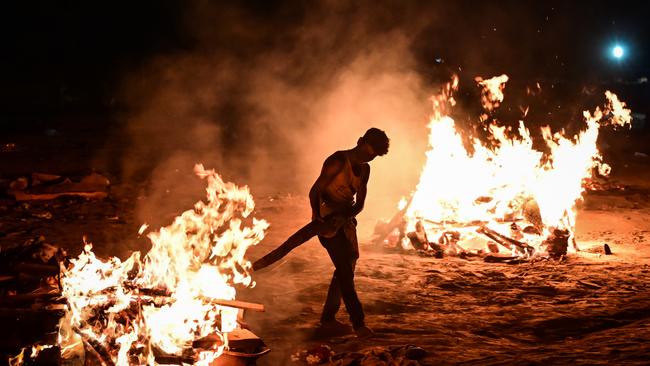
There were times when it appeared the government’s greatest priority during the crisis was not combating it but “managing the message’’ as it tightened laws about freedom of speech and the release of public information.
As the masses suffered, big business thrived and there were reports that India’s billionaires increased their wealth more than 20% during the pandemic.
The cancellation of the tournament is a rare blow to the billowing self-esteem of Indian cricket.
They say 81 cents out of every dollar raised in world cricket is generated by India. With money comes power.
India knows this and uses its power, sometimes generously as in playing a host of battling nations to prop them up financially, and. sometimes recklessly. like its desire to put this competition’s concerns ahead of safety risks.
But it has learnt that when it comes to good health, the man with the deepest pockets doesn’t always win … especially when he pokes a bear in the eye.
HOW IT UNFOLDED
April 7: Royal Challengers Bangalore and Australian paceman Damiel Sams tests positive during quarantine.
April 25: Rajasthan Royals Australian Andrew Tye leaves India due to COVID fears.
April 26: Test spinner Ravi Ashwin leaves the Delhi Capitals bubble to help his family fight COVID.
Royal Challengers Bangalore’s Adam Zampa and Kane Richardson return to Australia with the later duo just beating a flight shutdown.
April 27: The Australian government suspends all flights to and from India until May 15.
BCCI assures players they “have nothing to worry about’’ and said the tournament is not over until all players are safely home after it.
April 28: COVID ravaged Delhi hosts its first match of the IPL as ambulance sirens are frequently heard in the city streets and a large number of dead bodies were burnt a few kilometres away from cricket stadium.
April 29: Experienced umpire Nitin Menon withdraws from the IPL after his wife and mother test positive.
May 3: Covid strikes. Two Kolkata players test positive and the match between Kolkata Knight Riders and Royal Challengers Bangalore in Ahmedabad was postponed. Soon after that a Chennai Super Kings’ coach reports a positive test as do five groundsmen. The game is almost up.
May 3:Michael Slater attacks Prime Minister Scott Morrison for having “blood on his hands’’ for the Indian travel bans.
May 4: Sunrisers Hyderabad’s Indian keeper Wriddhiman Saha and Delhi’s Amit Mishra test positive. The competition is suspended indefinitely.
Originally published as Money, power and arrogance: The deadly cocktail behind the end of the IPL cricket tournament which should never have started



